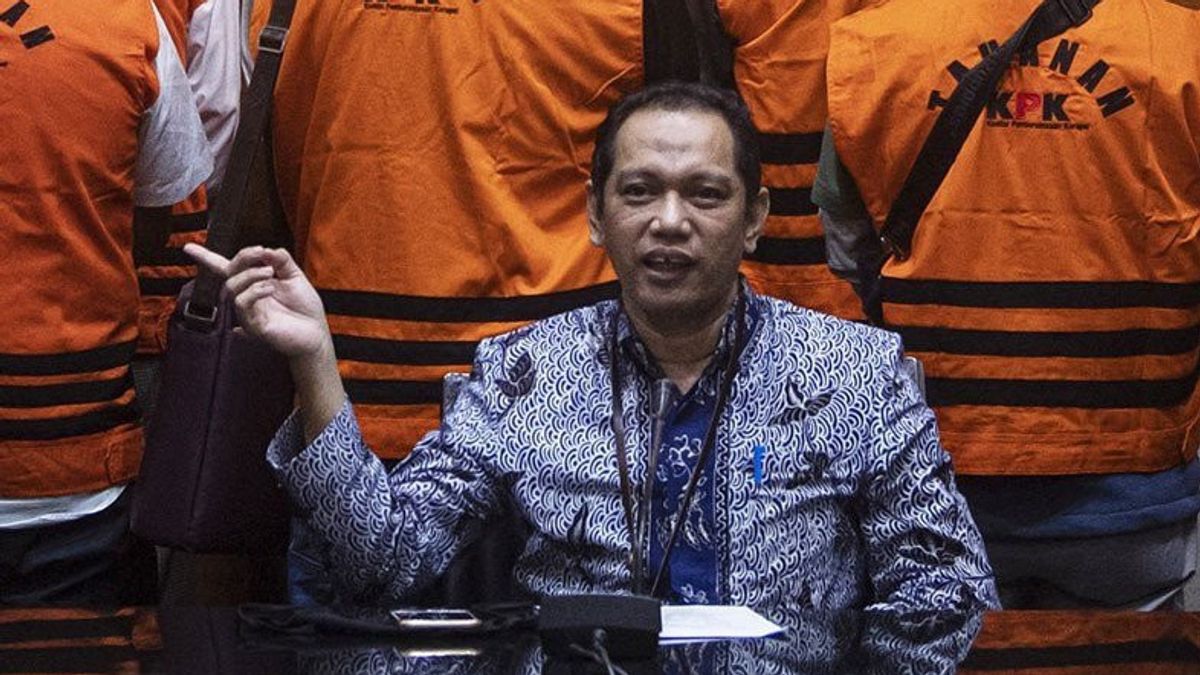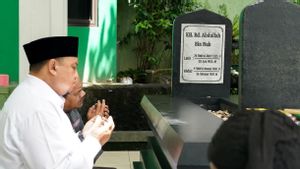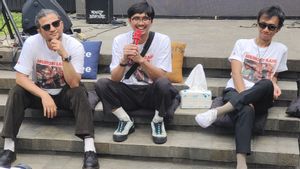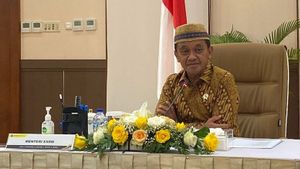JAKARTA - Deputy Chairman of the Corruption Eradication Commission (KPK) Nurul Ghufron likens the Integrity Assessment Survey (SPI) to an anti-theft alarm.
"It is impossible for homeowners to remain silent if they find out that there is a thief breaking into their house. Likewise for ASN in every k/l (ministry/institution), they are expected to be willing to respond seriously to input that says there are still corrupt practices in their institutions," he said. Ghufron was quoted by Antara from a written statement, Tuesday, March 22.
The SPI is a survey conducted by the KPK to photograph the integrity of a government institution through three sources, namely employees at the institution (internal), the public who have had contact with or access the services of the institution (external), and from experts (experts).
Based on KPK records, in 2021, the SPI involved more than 250 thousand respondents and was carried out on 98 ministries/agencies, 34 provincial governments, and 508 district/city governments.
The results of the 2021 SPI show that respondents believe that bribery and gratification practices can be found in 99 percent of survey participating agencies. Then they also believe that trading in influence occurs in 99 percent of agencies.
Then, the respondents also believed that the abuse of office facilities occurred in 99 percent of agencies, and the respondents also believed that there was misuse of goods and services in all agencies or 100 percent of the institutions surveyed by the KPK to be the scene of corruption in the misuse of goods and services.
"But if we want to be honest, we really don't need to be surprised by the findings. The thing is, since 2004-2021, bribery has become the most corruption case (tipikor) that has been acted on by the KPK," said Ghufron.
As noted by the KPK from 2004-2021, there were 791 cases of bribery, 284 cases of procurement of goods and services, and 50 cases of budget misuse.
According to Ghufron, the KPK uses the principle of "one is too many" in analyzing the results of the SPI. This means that each respondent who states that they have seen or heard of an incident of corruption in their agency will be given a high weight on their answer.
"The principle is this, corruption is a hidden crime like an iceberg. So, if there is only one respondent who dares to reveal incidents of corruption in his agency, it is a signal that the facts about corruption incidents can be more than the facts revealed by a small number of respondents," he said. .
In 2022, the KPK will again hold an SPI whose series of activities will begin in June with the number of SPI respondents set to increase to more than 300 thousand people.
Ghufron hopes that SPI respondents will give true answers if there is indeed a corrupt practice in their agency.
He gave an example if he knew or even saw firsthand the practice of buying and selling positions, bribery, gratuities or unprofessional officers when performing public services.
"So that this SPI can get a picture of the real problems that occur in the survey participating agencies so that the KPK can also provide recommendations that are in accordance with the problems that occur," he said.
However, if the survey participants do not fill in the correct answers, then the recommendations given by the KPK will also not be able to solve the problems that exist in the agency. In the end, he said, the purpose of SPI as an effort to prevent corruption was not realized.
Apart from SPI, he explained that the KPK also provides other corruption prevention systems, namely the monitoring center for prevention (MCP). If the SPI is done together with the Central Bureau of Statistics (BPS), the MCP is made with the Ministry of Home Affairs and the Financial and Development Supervisory Agency (BPKP).
Ghufron is optimistic that if an agency gets a good score for both, corruption can be suppressed in the organization.
"Because the principle is simple. If an agency gets good SPI and MCP scores, there won't be an arrest operation (OTT) there," he said.
The English, Chinese, Japanese, Arabic, and French versions are automatically generated by the AI. So there may still be inaccuracies in translating, please always see Indonesian as our main language. (system supported by DigitalSiber.id)













